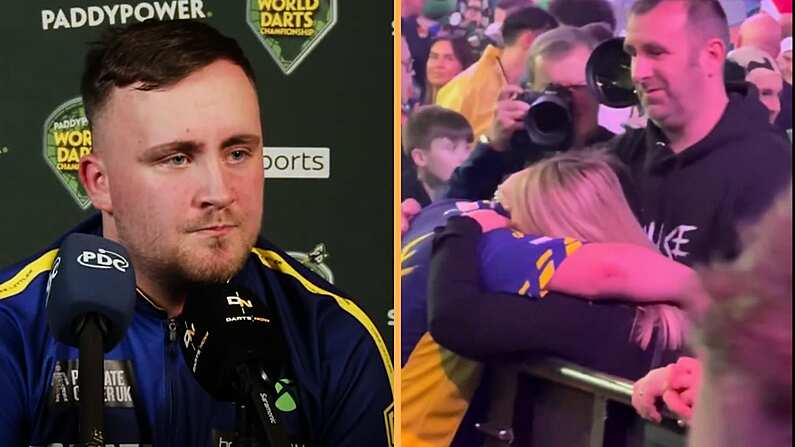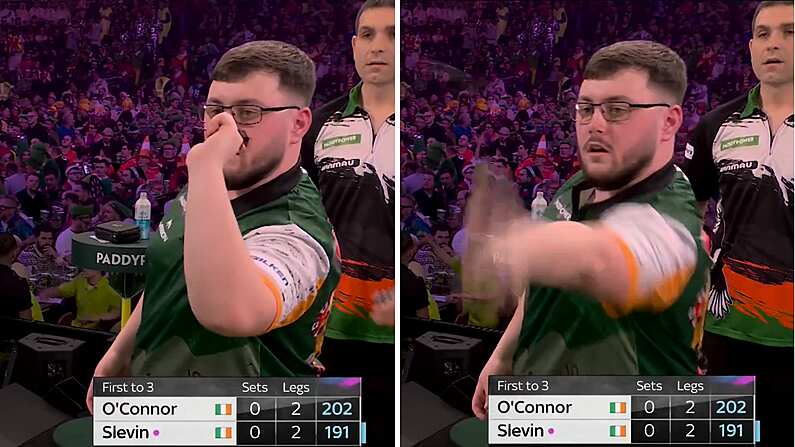Art-house movie loving football fans will remember the 2006 film Zidane: A 21st century portrait. Directors Douglas Gordon and Phillipe Parreno kept their cameras trained on Zinedine Zidane for the whole ninety minutes in a run of the mill La Liga game against Villareal in April 2005.
It was a propitious time to release such a film given that Zidane had not long before nutted Marco Matterrazi in the World Cup final. French philosopher (one of the many thousand - the philosophers trade union in France must be a powerful entity) Bernard Henri-Levy suggested that Zidane headbutt represented "the suicide of the demi-God."
Irish Times writer Keith Duggan noted that Zidane had been portrayed as "the most troubling French bloke since Albert Camus sent a man walking the beach. It is moody, thoughtful, artsy as hell and one of the best sports films ever made."
Few people, however, are aware that a remarkably similar film was made in 1970. The subject was not the French demi-God but the boy from Belfast, the fifth Beatle himself Georgie Best.
German filmmaker Hellmuth Costard travelled to Old Trafford for a mundane League game against Coventry, bringing eleven cameras with him. The result is Football As Never Before and it is being screened at the IFI on Sunday evening.
Curator Matthew Nolan has created the music that accompanies the film. He spoke to Balls.ie about the project.
This is documentary in its purist form. We're watching action unfold in real time. It's structured around one specific football match - a game between Man United and Coventry in September of 1970. And Hellmuth Costard, the director, comes from a new wave of German filmmakers.
From what I can gather from the little scraps of information about Costard's working life and creative life, and the genises of the film is that he was fascinated by Best. He took eight 60mm cameras, and eight cameramen one dull afternoon 46 years ago and just trained them on Best for the entirety of the match.
And that's what the film is. It's a fascinating portrait of an athlete and a cultural icon at the peak of his physical powers.
Costard secured permission from Manchester United and from Best himself to pursue the project but the resulting film was so obscure that Nolan believes that neither Best nor anyone connected with the club even watched it. Certainly, Best's family were unaware of the film until Nolan's brought it to Belfast last year.
I'm not even sure if he ever saw it. I don't think he did. And that will tell you how obscure a filmmaker Costard was. I'd say it got a couple of theatrical presentations in the early 70s and then I'd say it sat on a shelf for all those years.
For what it's worth, Manchester United beat Coventry 2-0 with Best scoring a goal and making a goal. He is on the ball for a total of 6 minutes throughout the 90.
By the beginning of the 1970-71 season, Best was still close to his peak but the Manchester United team of the 1960s was showing signs of decline.
The famous columnist Kevin Myers once suggested that it was "intellectual frustration" as much as anything else that contributed to Best's troubled later career. Best, according to this theory, grew bored and frustrated with colleagues, annoyed by seeing so many opportunities wasted and so many bad decisions taken by comparatively pedestrian teammates.
Does this sense come through in the film?
If you really get the nuances of football and English professional football, you can see that his brain and the way he's processing what's going on around him is on a different level to the others. And you can see him kinda getting bored and you see him when he's interested, he'll make a contribution. You see a lot of mistakes and then you just see some beautiful cinematic moments of him running with the ball or him in motion.
The film is over 100 minutes long, consisting of the three minute warm up, every last second of the 90 minutes+ match and a brief interlude covering the half-time period where Best walks into a room and stares into Costard's camera for three minutes.
Very little happens, there's a lot of repitition. But it's utterly engrossing. One of the guys who reviewed it for the gig in Belfast said he can't stop thinking about the film. Even though he found it hard going, he said he can't stop thinking about it for the last four days. Because it's provocative.
The film is being screened in the IFI this Sunday, the 6th November.









